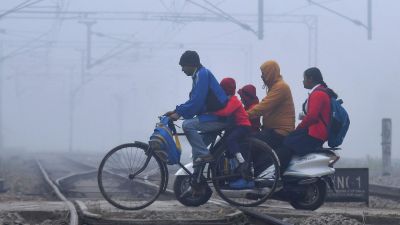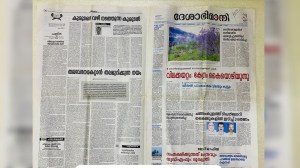Learning curve
For far too long, the teaching profession, which ought to be among the most respected, has been among the poorest paid. Therefore, the go...

For far too long, the teaching profession, which ought to be among the most respected, has been among the poorest paid. Therefore, the government deserves all praise for its decision to hike the pay-scales of teachers.
Now, teachers will no longer have to run educational sweatshops in order to make a decent living. However, the government should appreciate that this is only the beginning of a process of reform. It would be absurd to pay professors in very respectable five figures every month while their students pay annual tuition fees that barely make it into the four-figure bracket.
The public exchequer should not be burdened with yet another subsidy for the salaries of more than three lakh teachers. Educational institutions should, in large measure, be in a position to finance their own activities, including paying their staff and buying books and equipment.
Almost a decade ago, the technical institutions were required to go into the consulting market to generate their own funds. But almostimmediately, it was realised that the method could not be extended to the more liberal streams of education. What on earth can a Comparative Literature department offer consultancy on, for instance? Homer? Yet it would be absurd to suggest that it contributes nothing to the nation8217;s knowledge capital.
There is only one option for such streams of education: a hike in tuition fees. It is not a move that will find favour with student bodies, but they will gradually have to accept it as inevitable. The fees of most institutions are structured according to earning capacities that date back to the pre-liberalisation era. They were intended to see that poor students were not excluded from the system, but in terms of the purchasing power of today8217;s students, they are absolutely absurd.
When a fast-food meal costs the same as the monthly rent of a hostel room, it is obviously time for some rationalisation. Every day, the newspapers carry advertisements that show that Indian education is out of sync with the times.These ads offer admission to courses in British and Australian colleges, institutions that have accustomed themselves to the very same reality that Indian institutions now face: that in order to provide quality education, they have to be self-reliant in some degree. In other words, no free lunch any more.
The pity is that the very students who are prepared to pay in foreign exchange for these courses 8212; which are often of indifferent quality 8212; would be the first to raise the flag of protest if institutions here hike their fees by a few rupees. They ought to realise that there is nothing wrong with high rates so long as the interests of poorer students are safeguarded. In fact, a hike would have a very salutary effect, forcing students to take academics more seriously.
It is no coincidence that the students of technical institutions, who have to invest far more in their education, take their careers more seriously than students in the arts stream. A fee hike, therefore, will bring professionalism intoeducation and ought to be welcomed 8212; and not with student unrest.
- 01
- 02
- 03
- 04
- 05































